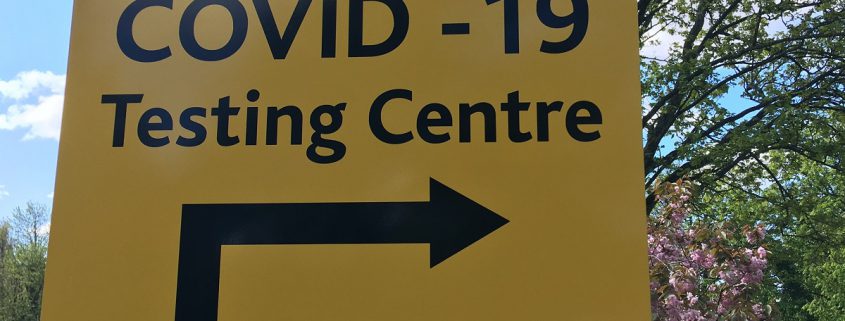What Kind of Coronavirus Testing Will Your College Be Giving Returning Students in the Fall?
Colleges across the country have announced that they will test returning students for Covid-19, especially those who want to live on their campuses.
But what does “testing” mean? Does it mean pointing a handheld thermometer at the foreheads of students before they are allowed to enter their dorms? Does it mean blood tests? The tests that colleges will administer will generally fall into one of these two categories:
- A swab test that confirms the presence of an active infection that can be passed on to other students.
- A blood test that looks for antibodies that indicate that a student has had the virus, but is probably immune. Note the word “probably” is there because scientists aren’t yet sure that the presence of antibodies completely indicates immunity.
To make it even more difficult to make plans, many colleges and universities are saying that they will test all students when school resumes in August or September but will modify their testing procedures as needed through the coming academic year.
One Example
According to “UConn Plans COVID-19 Tests For Students, Faculty and Staff Who Return To Campus,” an article by Don Stacom in The Hartford Courant on July 19, 2020 . . .
“Classes are scheduled to begin Aug. 31. The university said all residential students will return about two weeks before that to be tested and quarantined on campus. UConn plans to provide testing during check-in, but has not released details about that yet. The school is also still working out specifics for how it will test commuter students who don’t obtain a test on their own.”
Absent Information, How Can Students and their Parents Plan What to Do?
Even though colleges and universities are making plans that are not yet fully formed, virtually all are keeping their current plans posted and up-to-date on their websites. So as a parent or student, you can check there regularly.
But since health is a personal responsibility, it is also important to speak with your primary health care provider(s) to discuss whether your college is doing enough – especially if you need to consider any chronic illnesses or conditions.
We are encouraged to hear the positive news that new vaccines could be on the way, and that they could be available sometime within the next year. But in the meantime, we all need to be vigilant to protect ourselves.
We Invite You to Explore Your Career Options with Us. . .
Participate in the National Career & College Pathway Study to gain new insights about making educational decisions that align with your interests, passions, and aptitudes. Participants will receive information on college and career opportunities that match their interests.
Related Posts
Should You Write Your College Application Essays about COVID-19 this Year?
Up-to-Date Online Information on Colleges’ Reopening Plans
Are You Really Returning to Campus Next Semester?
How Are College Career Counseling Services Changing in Response to the Coronavirus Crisis?
How the Coronavirus Could Affect Your College Life and Plans










Leave a Reply
Want to join the discussion?Feel free to contribute!